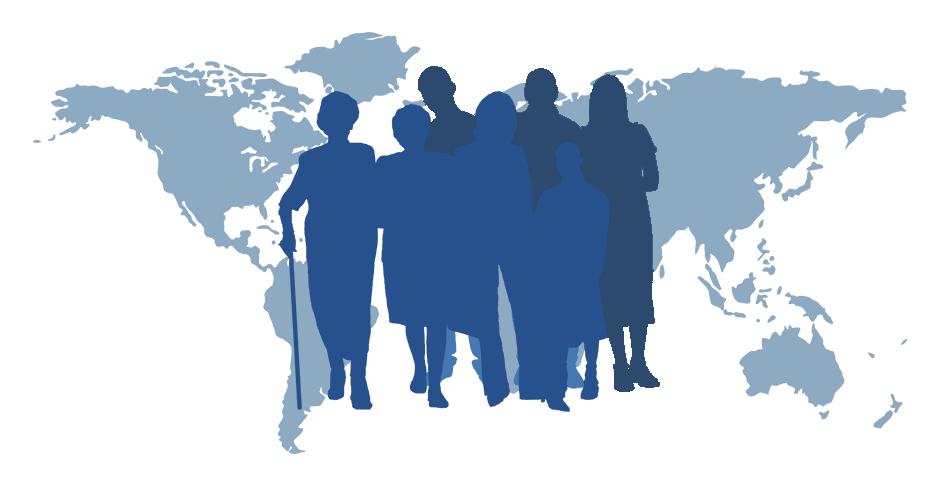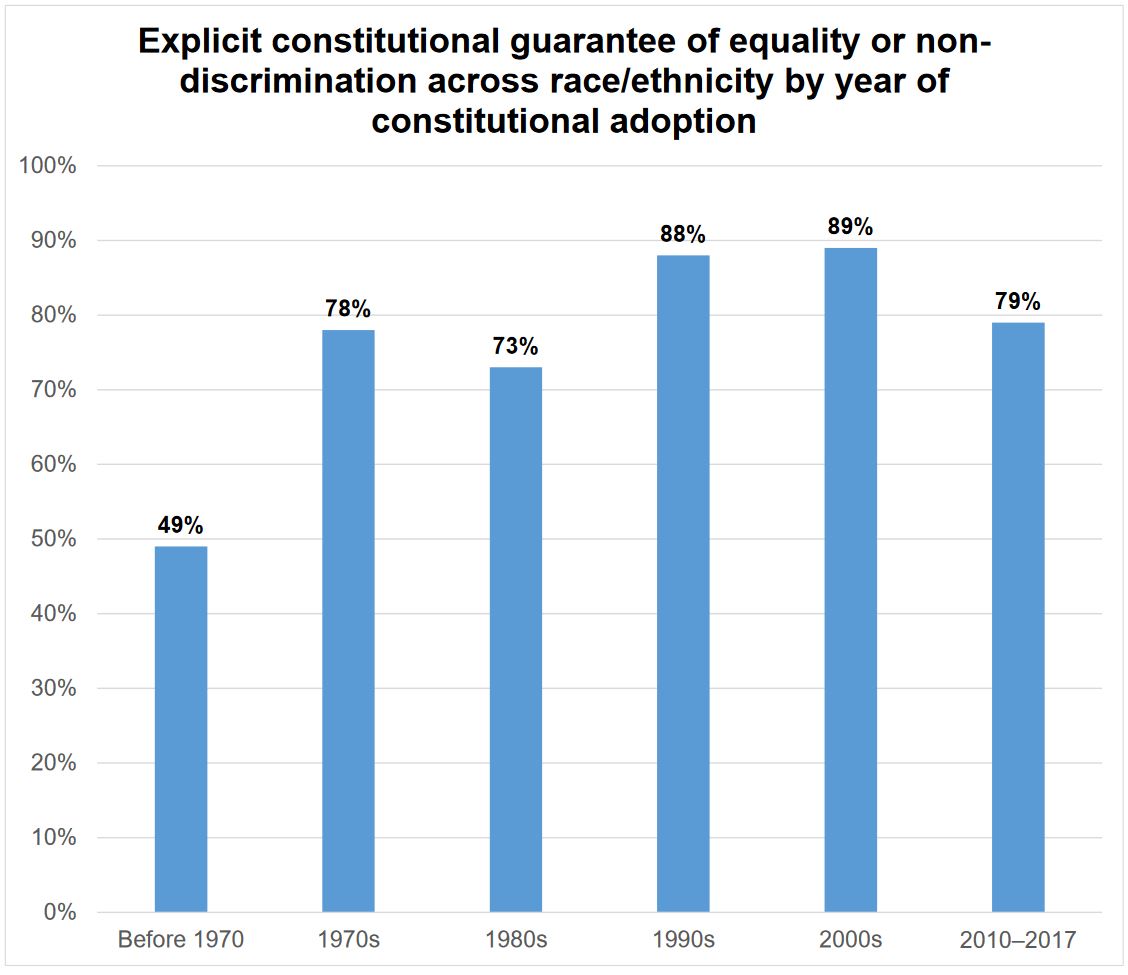
WORLD Policy Analysis Center
FACT SHEET: JANUARY 2020
- Ending discrimination based on race and ethnicity was a core purpose of the Universal Declaration of Human Rights in 1948, and addressed in more detail by the U.N. Convention on the Elimination of All Forms of Racial Discrimination (CERD) in 1965. As of 2019, the CERD has 179 states parties.
- Well into the 21st century, however, discrimination and disparities on the basis of race and ethnicity persist:
- In a study spanning 18 countries from across regions, researchers found that racial minorities nearly always received fewer call-backs for job openings, despite equal qualifications
- In another study focused on the Americas, among 14 of 18 countries, people who self-identified as “white” reported the highest mean incomes
- These disparities are driven both by ongoing discrimination as well as historic deprivations of rights and discrimination in the law:
- In the U.S., slavery followed by Jim Crow laws restricted economic opportunities and political participation by black Americans until 1965
- In South Africa, apartheid excluded black South Africans from employment, education, and landownership until 1991
- Addressing present inequalities requires both prohibiting discrimination and addressing the impacts of past discrimination and exclusion:
- In the U.S., median net worth of black families is 10% that of white families
- In Brazil, another country with a long legacy of slavery, poverty rates among Afro-Brazilians are twice those of white Brazilians
- This is essential not only for human rights, but for ensuring all countries can benefit from the skills and insights of all people. Integrated neighborhoods and more diverse schools and workplaces support:
- Better individual outcomes, including earnings, health, leadership, and attitudes towards other groups
- Better outcomes for businesses and countries, including economic performance
- Constitutions can make a difference in each area:
- In Hungary, constitutional protections against direct discrimination provided the basis for desegregation in a town that established separate schools for Roma children
- In the U.K., the prohibition of indirect discrimination led to the invalidation of a racially biased employment test
- In South Africa, the constitution’s support for affirmative measures helped address one aspect of economic inequality created by apartheid
- Globally, 76% of constitutions guarantee equal rights or non-discrimination regardless of race/ethnicity
- Discrimination on the basis of language often intersect with racial/ethnic discrimination. Around the world, indigenous groups and ethnic minorities are more likely to speak minorities languages:
- 44% of constitutions guarantee equal rights broadly on the basis of language, while 20% protect the right to learn in their own language for at least some linguistic minorities
- Fewer constitutions take more specific approaches to racial and ethnic discrimination:
- Just 5% of constitutions address indirect discrimination on the basis of race or ethnicity
- 17% allow for affirmative measures to remedy historic inequalities
- A handful explicitly address segregation
- Guarantees have become more common over time. Whereas 49% of current constitutions adopted before the 1970s guarantee equal rights regardless of race/ethnicity, 79% of those adopted in 2010–2017 do so.

ABOUT ADVANCING EQUALITY
To learn more, please read or download the open-access book Advancing Equality: How Constitutional Rights Can Make a Difference Worldwide (Jody Heymann, Aleta Sprague, and Amy Raub; University of California Press, 2020).
Analyzing the constitutions of all 193 United Nations countries, Advancing Equality traces 50 years of change in constitution drafting and examines how stronger protections against discrimination, alongside core social and economic rights, can transform lives.
ABOUT WORLD
The WORLD Policy Analysis Center (WORLD) aims to improve the quantity and quality of globally comparative data on policies affecting health, development, well-being, and equity. With these data, WORLD informs policy debates; facilitates comparative studies of policy progress, feasibility, and effectiveness; and advances efforts to hold decision-makers accountable.